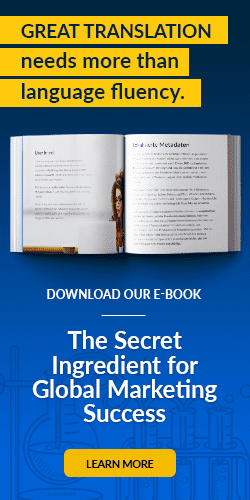Hotel websites are much like their brick-and-mortar brethren: artfully designed, enticing guests with an atmosphere of comfort and convenience. Hotelier copywriters craft descriptive, evocative content that few industries can rival.
But when it comes to localizing hotel websites for global customers, that creative copy becomes a problem.
Your translated hotel website might read like a dream, but global customers may never find it.
Many translation solutions may have the copywriting chops to capture the spirit of such compelling content … but they rarely have the technology and expertise to bring that creativity to a hotel’s international SEO strategy.
That means your translated hotel website might read like a dream, but global customers may never find it.
The SEO Problem
When it comes to the hospitality industry, content translation is a unique beast. To be done effectively, translations must be accurate, adequate, and as evocative and creative as your flagship site's content. This extends to metadata and other hidden, yet SEO-rich, content.
Most website translation approaches may have the ability to replicate your brand’s unique voice in many different languages, but they often neglect the international SEO opportunities—the search terms global customers will use to find your offerings.
Remember that global users-especially in markets with low awareness of your brand-aren't likely to look for your hotel or brand by name. They'll instead use search terms that reflect what kind of trip they're taking, or what kind of hotel they prefer. For instance, "affordable hotels in Madrid near Prado Museum" or "resort hotels in Orlando with shuttle to theme parks."
Your website translations must be accurate and creative—and extend to metadata and other SEO-rich content, too.
Legacy translation vendors usually don’t understand the best practices of international SEO.
Even worse, they often don't know how to detect SEO-rich assets (like metadata) on your site to translate it in the first place! That means your content won't display in those regional web searches. In many cases, these unreliable solutions also utilize underqualified translators or undercooked machine-translation solutions, resulting in lackluster or in accurate localizations. Your imaginative description of the perfect vacation getaway is replaced with something bland or ill-phrased.
That won’t bring you global guests, and it won’t bring you any global SEO benefit, either.
Beyond on-site translations, special under-the-hood website data-including structured data and special hreflang tags-are used to improve SEO, and signal to Google when a website is available in different languages. Localizing this material can boost your relevance and ranking in local searches … but few website translation vendors know how to do that well, if at all.
Few vendors know how to localize structured data and ‘hreflang’ information well—if at all.
Finally, consider the skyrocketing smartphone adoption rates in most global markets. Your international customers are booking from their mobile devices more than ever. Google's recently-implemented "mobile-first" index impacts how your localized website appear in search results. It prioritizes mobile-friendly websites over others. That means you should be translating your mobile or mobile-friendly experiences, too.
Most legacy translation vendors struggle with that, too.
Thankfully, there’s one website translation solution that’s fully equipped to keep hoteliers in control of their international SEO strategies.
The SEO Solution
MotionPoint’s turn-key proxy-based translation solution was built specifically to solve the problems that hoteliers often experience online. Our technology eliminates the operational costs and complexities of website translation, and optimizes websites for global SEO.
MotionPoint’s optimization offerings and technologies include, but are not limited to:
- Knowledgeable, skilled translators who deliver accurate and creative brand-perfect translations.
- SEO glossaries and style guides to maintain brand integrity across markets at launch and throughout the life of the website.
- Translation of SEO keyword-rich data, such as page titles and descriptions, Open Graph data, and Twitter cards.
- Global sitemaps injected with hreflang tags, informing Google that versions of your website exist in alternate languages.
- Proxy technology and API capabilities that translate content wherever it lives—even on third-party services and booking engines.
- Effortless translation of your mobile-friendly website that preserve the look, feel and function of the experience.
- Localizations, customizations and campaigns to offer unique promotions or use regionally-preferred phrases that appeal to specific markets.
Only MotionPoint’s solution has the expertise and technology needed to ensure that when your customers are looking for the hotel that meets all their needs, they find your brand, and your website—in no matter what language they might speak.
Last updated on March 13, 2018
